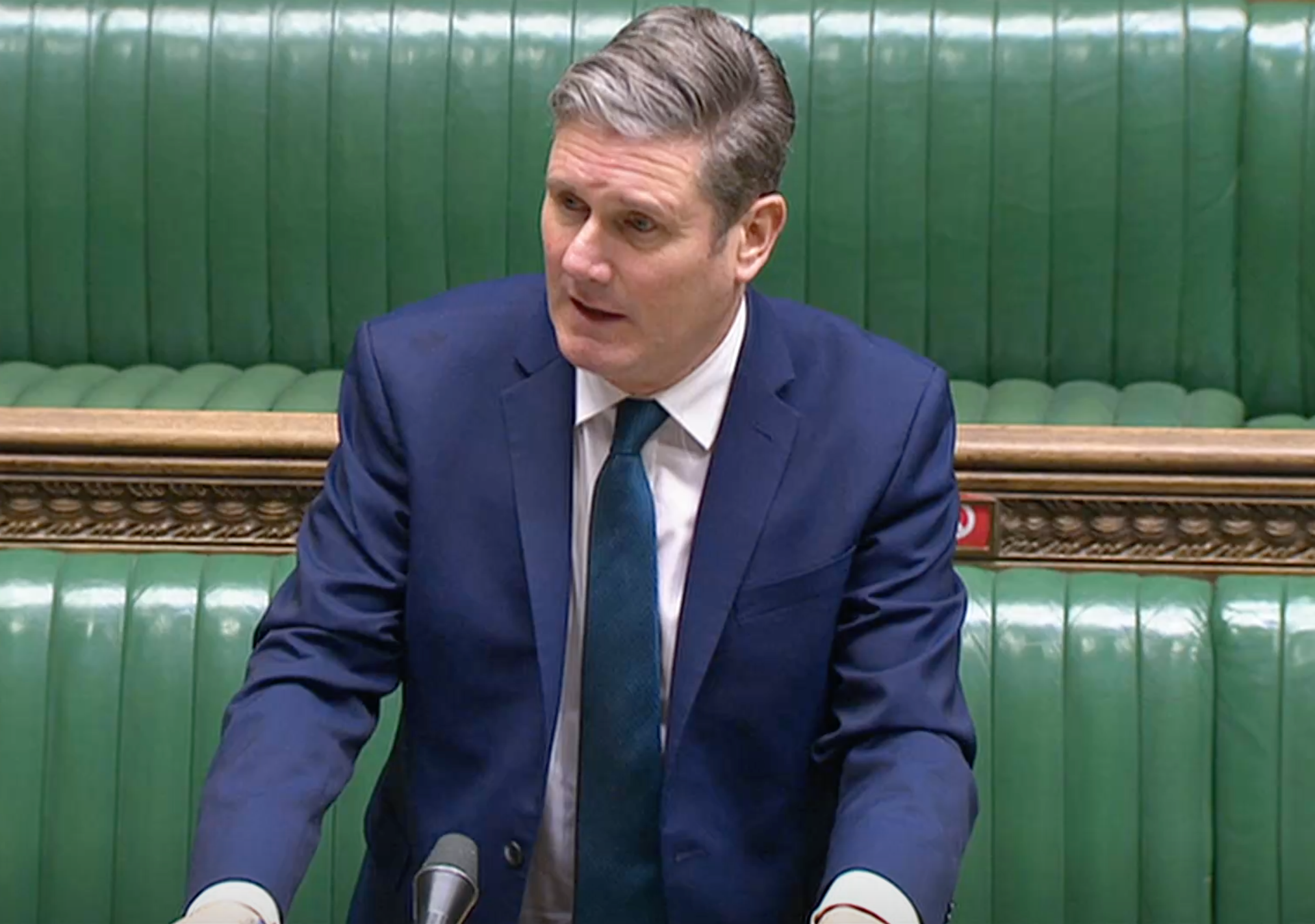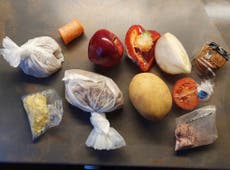Neither Keir Starmer nor Lindsay Hoyle could get a grip on Boris Johnson, the greased piglet
The Labour leader’s attack fizzled, and the prime minister easily survived being told off by the speaker, writes John Rentoul


Once upon a time, Boris Johnson compared his opponents to a greased piglet – first Tony Blair and then David Cameron – before Cameron returned the compliment and applied the phrase to him. It certainly applied to him today.
Keir Starmer had come to the Commons with a well-prepared case for the prosecution, and tried to turn Prime Minister’s Questions into a session of the public inquiry into the government’s handling of coronavirus. It was a careful and serious approach that had no hope of confining its slippery, smooth-skinned quarry.
Starmer and Johnson traded dates, warnings and levels of restrictions on social mixing to neither side’s advantage. After four questions, the prime minister took refuge in the defence that Labour was still urging schools be kept open on the day that he announced the third lockdown. He then contradicted himself without a trace of embarrassment, saying of Starmer: “You’d think he had no policy other than to plunge the country into 12 months of lockdown.”
Starmer shook his head and muttered: “Just not true.” But the piglet had got away. The Labour leader turned to what ought to have been a more promising line of attack, the inadequate food parcels sent out by the government scheme to provide for children entitled to free school meals. “Would he be happy with his kids living on that?”
The prime minister switched tactics again, adopting a device occasionally used by Margaret Thatcher of saying it was an absolute disgrace and the government ought to do something about it. He even had the cheek to say he was “grateful” to Marcus Rashford, the campaigning footballer, “who is doing quite an effective job in holding the government to account, in comparison with the right honourable gentleman”.
Having taken the precaution of speaking to Rashford on the phone before PMQs, the piglet had once again got away. Starmer thought he had a dramatic coup that would win the day, as he revealed that parcels that Johnson had just described as an “insult” were pretty much in line with the Department for Education’s guidelines. But the moment was lost in detail, and pre-empted by the prime minister’s vigorous self-criticism, which was immediately followed by insisting that the government was doing “everything we can” to ensure that “no child goes hungry as a result of the privations caused by this pandemic”.
It was shameless and highly effective. Not even Lindsay Hoyle, the speaker, could get the better of the elusive prime minister, who launched his sixth answer – the one to which he knows the leader of the opposition will be unable to reply – by calling Starmer “hypocritical and absurd”. Before we could discover the unconvincing basis of this charge, Hoyle intervened to remind Johnson that “hypocritical” is unparliamentary language (it implies that someone is knowingly holding themselves out to be better than they are). Johnson withdrew it, knowing that his point had been made, and then carried on. He said that Starmer’s urging of even faster vaccinations came from the leader of “the party that wanted the country to stay in the EU vaccination programme”, who “stood on a manifesto to dismantle the very pharmaceutical companies that have created this miracle of science”.
Both points were broadly true, but they were too much for Hoyle, who cut Johnson short, telling him off for not answering the question, which had been about free school meals. Prime ministers tend not to like speakers who interrupt them, and Johnson and Cameron both loathed John Bercow with peerage-denying fury, but I don’t think Johnson minded being cut off by Hoyle on this occasion, because he had already made his points.
With a happy squeal, the prime minister was free.



Join our commenting forum
Join thought-provoking conversations, follow other Independent readers and see their replies
Comments